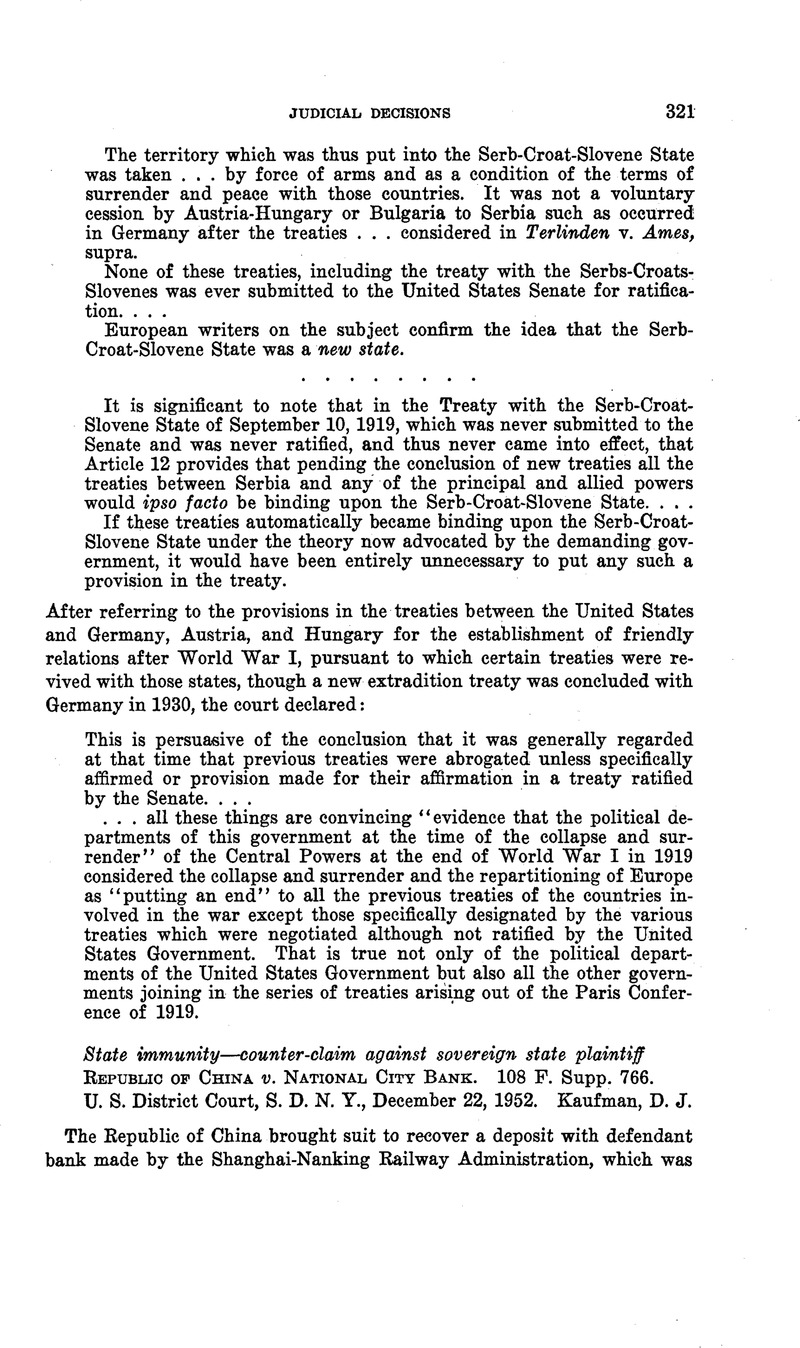No CrossRef data available.
Published online by Cambridge University Press: 20 April 2017

1 12 U. S. C. § 632
2 83 F. (2d) 236 (C.C.A. 2d, 1936), cert, denied, 299 U. S. 563 (1936).
3 90 F. Supp. 448 (S. D. N. Y., 1950), digested in this Journal, Vol. 45 (1951), p. 196. This was a different case from the other of the same name, though on similar facts.
4 In Anderson v. Speyer, 115 N. Y. S. (2d) 132 (N. Y. County, June 5, 1952), the International Committee of Bankers of Mexico, which had effected a settlement of certain Mexican debts on behalf of the bondholders, brought an action seeking approval of their accounts in order to accomplish final distribution of all funds turned over to the Committee by Mexico. Non-assenting bondholders counter-claimed, seeking priority in distribution over those assenting to the plan worked out by the Committee with the Mexican Government. Holding that the counter-claims sought relief agaiast the Mexican Government rather than against the Committee, the court ordered their dismissal, saying: “A friendly sovereign government cannot be sued nor its property attached in our courts without its consent. Even where the foreign government comes in to our courts as a suitor, the defendant may not avail himself of any counterclaim or set-off except, perhaps, a set-off arising out of the same transaction. … The present defendants by their counterclaims are seeking ‘redress for a wrong which they claim the Mexican government has done.’”
In Republic of Italy v. DeAngelis, 106 F. Supp. 605 (S. D. N. Y., Aug. 19, 1952), a foreign government was allowed to sue an individual on a contract claim.